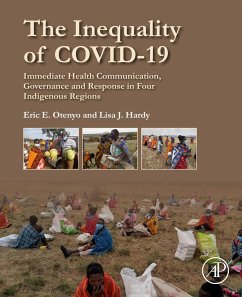The Inequality of COVID-19: Immediate Health Communication, Governance and Response in Four Indigenous Regions explores the use of information, communication technologies (ICTs) and longer-term guidelines, directives and general policy initiatives. The cases document implications of the failure of various governments to establish robust policies to mitigate the spread of COVID-19 in a sample of advanced and low-income countries. Because the global institutions charged with managing the COVID-19 crisis did not work in harmony, the results have been devastating. The four Indigenous communities selected were the Navajo of the southwest United States, Siddi people in India, Aboriginal and Torres Strait Islander peoples of Australia and the Maasai in East Africa.
Although these are all diverse communities, spread across different continents, their base economic oppression and survival from colonial violence is a common denominator in hypothesizing the public health management outcomes. However, the research reveals that national leadership and other incoherent pandemic mitigation policies account for a significant amount of the devastation caused in these communities.
Although these are all diverse communities, spread across different continents, their base economic oppression and survival from colonial violence is a common denominator in hypothesizing the public health management outcomes. However, the research reveals that national leadership and other incoherent pandemic mitigation policies account for a significant amount of the devastation caused in these communities.
- Explores examples of pandemic mitigation practices in indigenous communities
- Provides case studies of importance of ICTs in health care in 21st century pandemic management protocols
- Presents real policy data collected from different continents from early days through the first year of the global pandemic
Dieser Download kann aus rechtlichen Gründen nur mit Rechnungsadresse in A, B, BG, CY, CZ, D, DK, EW, E, FIN, F, GR, HR, H, IRL, I, LT, L, LR, M, NL, PL, P, R, S, SLO, SK ausgeliefert werden.









